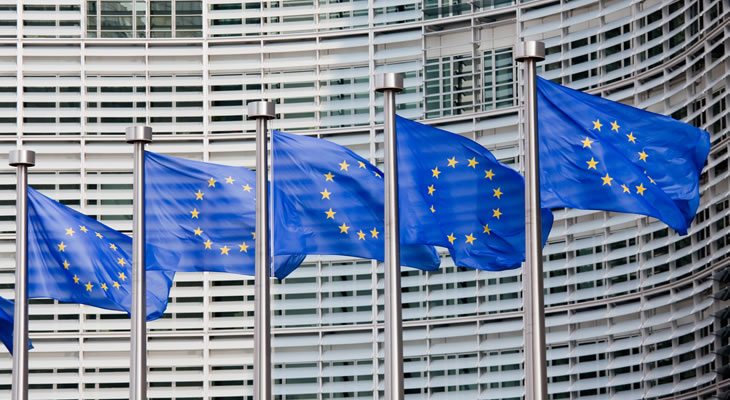The United Kingdom is close to finalising the terms of the divorce bill it must pay the European Union to cover the costs of Brexit.
The news has given the GBP ZAR exchange rate a boost after the issue of money derailed the negotiations for several months, with neither side willing to budge on their positions.
The Pound Sterling South African Rand exchange rate has climbed 0.7% to 18.38 today.
GBP ZAR Exchange Rate Gains on Signs of Progress over Brexit Divorce Bill
While the UK government had declared it would only negotiate a divorce settlement if the EU agreed to also simultaneously discuss trade agreements, Brussels was unmoving in its demand that the bill be settled before discussions on post-Brexit relationships could begin.
However, amid rumours that the two parties are beginning to find a consensus regarding what methodology should be used to calculate the costs of the separation, it has emerged that the UK government may be willing to agree to pay around £50 billion to Brussels.
The government has been forced to bow to pressure from the EU ahead of the European Council meeting next month, as missing the chance to have officials approve the next phase of negotiations could see talks on trade delayed until March 2018.
The agreement hasn’t yet been finalised, but from a market point of view this is a positive first step towards trade discussions.
What Are the Risks to Pound Sterling (GBP) Exchange Rates?
Michel Barnier, the chief EU negotiator, has stated that the deal is not yet completed, so there is always the potential for the divorce bill to be higher than the £50 billion suggested.
However, even if the UK can overcome this initial hurdle, there is another issue left to sort that could prevent talks moving on to trade next month; the Irish border.
The question of what will happen to the Irish border after the UK leaves the EU remains unresolved, with the possibility of a hard border causing serious consternation to Irish officials.
In a comment given to The Independent, an Irish source stated;
‘The British want to give the impression that we are all on the same page, that it is just a question of finding a form of words, but that is certainly not the case.’
‘We need an explicit commitment, confidence about the impact on the island of Ireland, before the talks can progress to phase two.’
Ireland has threatened to veto any attempt to move talks on to the topic of trade until it has been given a satisfactory answer regarding what the UK has planned for the border.
South African Rand (ZAR) Weakness on the Horizon as Moody’s Prepares Credit Ratings Review
The dire state of South Africa’s finances could continue to weigh on the Rand over the coming weeks as credit ratings agency Moody’s prepares to reassess the nation’s finance.
South African debt currently has a junk rating with two of the three major ratings companies – S&P and Fitch – and Moody’s has said it will review its current ratings, with a view to downgrading them, within the next 90 days.
This comes just a month after Malusi Gigaba, South Africa’s new Finance Minister, painted a gloomy picture of the nation’s economy.
Gigaba predicted that the government will see a -ZAR 50.8 billion shortfall in revenue during the 2018 fiscal year, helping to push government debt levels up to 60% of GDP by 2022.
President Jacob Zuma is now pressuring the Presidential Fiscal Committee to slash -ZAR 25 billion from spending next year and increase the nation’s revenue by ZAR 15 billion.
What Are the Risks to South African Rand (ZAR) Exchange Rates?
ZAR exchange rates will likely fall if Moody’s does indeed downgrade its credit rating, as this will make it even more expensive for the South African government to borrow money.
Considering Gigaba has just forecast a revenue short fall, the government will already need to issue many new bonds to make up the deficit and a worsening credit rating will only serve to push the national debt up an even greater percentage of GDP.


Comments are closed.